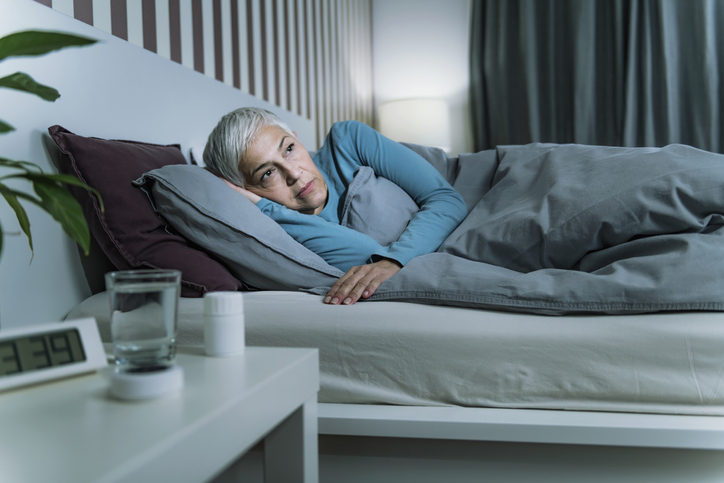You know the feeling. You’ve been lying in your bed, wide awake, for hours. The clock on your nightstand shows you that it’s 2 AM. Your mind has been racing, and thoughts about your day keep resurfacing over and over despite your attempts to brush them aside. You twist and turn, trying to find a more comfortable position, hoping that you’ll eventually fall asleep. Yet as exhausted as your body is, your brain simply won’t turn off. Predictably, you finally drift off to sleep, only to be rudely awakened by your alarm less than an hour later! And now, another long, exhausting day lies ahead of you.
Sounds familiar? This is more common than you think. According to the Sleep Foundation, about 70 million Americans are affected by sleep disorders, and as many as 30% of adults suffer from chronic insomnia. Our online pharmacists get questions about insomnia from our patients regularly.
So what is insomnia, and how can I overcome, prevent, and manage it?
The American Academy of Sleep Medicine defines insomnia as difficulty falling or staying asleep that subsequently leads to daytime sleepiness or impairment. Insomnia can be categorized as chronic insomnia disorder, short-term insomnia disorder, and other insomnia disorder.
Surprisingly, while insomnia is sometimes caused by medical conditions such as Parkinson’s, thyroid diseases, pregnancy, and menopause, in most instances it is the result of our lifestyle choices. This includes eating spicy foods, drinking alcohol, not exercising consistently, work-related stress, and poor sleep habits such as watching television or being on your phone in bed before trying to sleep. The majority of patients who reach out to chat with our online pharmacists fall into this latter category.
The good news is that insomnia can be reversible, both with behavioral and medication treatments!
For behavioral treatment, the first step is to eliminate all self-induced causes. Create a bedtime routine like taking a bath and drinking a warm (non-alocholic) beverage before going to bed. Incorporating things like yoga and meditation can calm your mind. Avoid strenuous late night exercise before your bedtime, as these could be counterintuitive.
For medication treatment, Benadryl, Melatonin, and Noni juices are readily available over the counter and, depending on your current symptoms and medical condition, are often first-line options. Be sure to chat with our online pharmacists to learn what options are best for you that will best manage your insomnia and prevent interactions with your current medications. We look forward to hearing from you!




.jpg)



